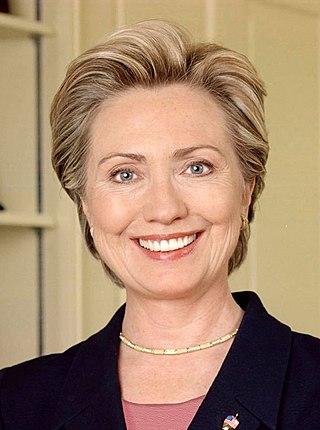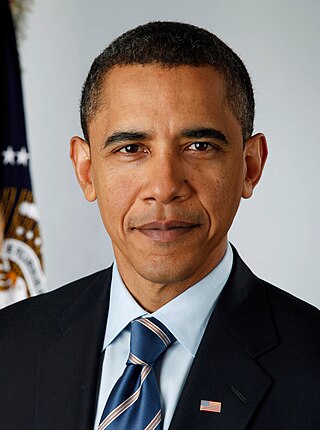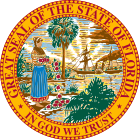
From the first United States Congress in 1789 through the 116th Congress in 2020, 162 African Americans served in Congress. Meanwhile, the total number of all individuals who have served in Congress over that period is 12,348. Between 1789 and 2020, 152 have served in the House of Representatives, 9 have served in the Senate, and 1 has served in both chambers. Voting members have totaled 156, with 6 serving as delegates. Party membership has been, 131 Democrats, and 31 Republicans. While 13 members founded the Congressional Black Caucus in 1971 during the 92nd Congress, in the 116th Congress (2019-2020), 56 served, with 54 Democrats and 2 Republicans.
In American politics, a superdelegate is an unpledged delegate to the Democratic National Convention who is seated automatically and chooses for themselves for whom they vote. These Democratic Party superdelegates include party leaders and elected officials (PLEOs).

The Young Democrats of America (YDA) is the youth wing of the Democratic Party of the United States. YDA operates as a separate organization from the Democratic National Committee; following the passage of the Bipartisan Campaign Reform Act, it became an independent 527 organization. The group's membership consists of Democrats from ages 14 to 35, and its political activities include an emphasis on increasing the voter turnout of young people.

From January 3 to June 3, 2008, voters of the Democratic Party chose their nominee for president in the 2008 United States presidential election. Senator Barack Obama of Illinois was selected as the nominee, becoming the first African American to secure the presidential nomination of any major political party in the United States. However, due to a close race between Obama and Senator Hillary Clinton of New York, the contest remained competitive for longer than expected; neither candidate received enough pledged delegates from state primaries and caucuses to achieve a majority, without endorsements from unpledged delegates (superdelegates).
The Utah Democratic Party is the affiliate of the Democratic Party in the U.S. state of Utah. Its platform focuses on economic security, equal opportunity, the common good, and American leadership. The party also describes itself as a big tent party.

The Utah Republican Party is the affiliate of the Republican Party in the U.S. state of Utah. It is currently the dominant party in the state, and has been for almost all of its history, controlling all four of Utah's U.S. House seats, both U.S. Senate seats, the governorship, and has supermajorities in both houses of the state legislature.

The 1876 South Carolina gubernatorial election was held on November 7, 1876 to select the governor of the state of South Carolina. The election campaign was a referendum on the Radical Republican-led state government and their Reconstruction policies. Opponents disputed the challenger Wade Hampton III's victory, gained by a margin of little more than 1100 votes statewide. But he took office in April 1877, after President Hayes withdrew federal troops as a result of a national Democratic compromise, and the incumbent Daniel Henry Chamberlain left the state.

The 2008 Iowa Democratic presidential caucus occurred on January 3, and was the state caucuses of the Iowa Democratic Party. It was the first election for the Democrats of the 2008 presidential election. Also referred to as "the First in the Nation Caucus," it was the first election of the primary season on both the Democratic and Republican sides. Of the eight major Democratic presidential candidates, then-U.S. Senator Barack Obama of Illinois received the most votes and was ultimately declared the winner of the Iowa Democratic Caucus of 2008, making him the first African American to win the caucus and the first African American to win a primary state since Jesse Jackson in 1988. Former U.S. Senator John Edwards of North Carolina came in second place and then-U.S. Senator Hillary Clinton of New York finished third, though Clinton received more delegates than Edwards. Campaigning had begun as early as two years before the event.

The Democratic Party of Oregon is the Oregon affiliate of the Democratic Party. The State Central Committee, made up of two delegates elected from each of Oregon's 36 counties and one additional delegate for every 15,000 registered Democrats, is the main authoritative body of the party. The party has 17 special group caucuses which also each have representation on the State Central Committee.

Brenda Lawrence is an American politician who served as the U.S. representative from Michigan's 14th congressional district from 2015 to 2023. A member of the Democratic Party, Lawrence served as mayor of Southfield, Michigan, from 2001 to 2015, and was the party's nominee for Oakland County executive in 2008 and for lieutenant governor in 2010. Her district covers most of eastern Detroit, including downtown, and stretches west to take in portions of Oakland County, including Farmington Hills, Pontiac, and Lawrence's home in Southfield.

The 2008 United States presidential election in Iowa took place on November 4, 2008, as part of the 2008 United States presidential election. Voters chose seven representatives, or electors to the Electoral College, who voted for president and vice president.

The Nevada presidential caucuses were an electoral event in which citizens met in precinct caucuses to elect delegates to the corresponding county conventions. The 2020 Nevada caucuses were the last held in the state before the state legislature signed a law which abolished the Nevada Caucus and replaced it with a Primary. There are 17 counties in Nevada and so there are 17 conventions. The county conventions then select delegates to Nevada's State Convention, which then choose delegates for the presidential nominating conventions.

The 2008 Idaho Democratic presidential caucuses were held on Super Tuesday, February 5, 2008, with 18 national delegates at stake. For the first time, caucuses were held in all 44 counties, all of them open caucuses organized at the county level rather than the precinct level.

The 2008 Washington Democratic presidential caucuses were a series of events held by the Washington State Democratic Party to determine the delegates that the Party sent to the 2008 Democratic National Convention. Delegates were selected in a four-tier process that began with precinct caucuses, was further refined in legislative district caucuses and/or county conventions, concluded for some delegates in the congressional district caucuses, and finally concluded for the remaining delegates at the state convention.

The 2008 United States presidential election in Washington took place on November 4, 2008, and was part of the 2008 United States presidential election. Voters chose 11 representatives, or electors to the Electoral College, who voted for president and vice president.

The 2012 United States presidential election in Nevada took place on November 6, 2012, as part of the 2012 United States presidential election in which all 50 states plus the District of Columbia participated. State voters chose six electors to represent them in the Electoral College via a popular vote pitting incumbent Democratic President Barack Obama and his running mate, Vice President Joe Biden, against Republican challenger and former Massachusetts Governor Mitt Romney and his running mate, Congressman Paul Ryan.

The 2012 United States presidential election in North Dakota took place on November 6, 2012, as part of the 2012 United States presidential election in which all 50 states plus the District of Columbia participated. North Dakota voters chose three electors to represent them in the Electoral College via a popular vote pitting incumbent Democratic President Barack Obama and his running mate, Vice President Joe Biden, against Republican challenger and former Massachusetts Governor Mitt Romney and his running mate, Congressman Paul Ryan.

The 2012 United States presidential election in Florida took place on November 6, 2012, as part of the 2012 general election in which all 50 states plus the District of Columbia participated. Florida voters chose 29 electors to represent them in the Electoral College via a popular vote pitting incumbent Democratic President Barack Obama and his running mate, Vice President Joe Biden, against Republican challenger and former Massachusetts Governor Mitt Romney and his running mate, Congressman Paul Ryan.

The 2020 United States presidential election in Iowa was held on Tuesday, November 3, 2020, as part of the 2020 United States presidential election in which all 50 states plus the District of Columbia participated. Iowa voters chose electors to represent them in the Electoral College via a popular vote, pitting the Republican Party's nominee, incumbent President Donald Trump of Florida, and running mate Vice President Mike Pence of Indiana against Democratic Party nominee, former Vice President Joe Biden of Delaware, and his running mate California Senator Kamala Harris. Iowa has six electoral votes in the Electoral College.

The 2020 United States presidential election in Virginia was held on Tuesday, November 3, 2020, as part of the 2020 United States presidential election in which all 50 states plus the District of Columbia participated. Virginia voters chose electors to represent them in the Electoral College via a popular vote, pitting the Republican Party's nominee, incumbent President Donald Trump, and running mate Vice President Mike Pence against Democratic Party nominee, former Vice President Joe Biden, and his running mate California Senator Kamala Harris. Virginia has 13 electoral votes in the Electoral College.

















